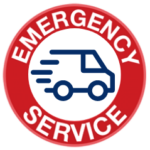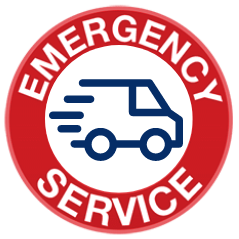Many consumers assume they only find dangerous chemicals while outdoors or in the workplace. However, chemicals also exist inside your home. In fact, the U.S. Environmental Protection Agency has found that indoor pollution levels sometimes exceed those found outdoors by as much as 100 times. Fortunately, you can reduce chemical exposure and improve indoor air quality (IAQ) in your Canton, Georgia, home using these helpful strategies.
Install an Air Purifier
It’s true that the cheap air purifiers you can buy off the shelf at big-box stores won’t put much of a dent in your chemical exposure. They’re not terribly efficient and they don’t cover much square footage. However, whole-home and professional-grade air purifiers, like Carrier air cleaners, are worth every penny. They tackle particles in the air that can cause illness and respiratory discomfort. Additionally, they neutralize chemical odors that might give you headaches or make life unpleasant at home.
Our trained technicians will help you choose the best air purifier for your home, then professionally install it. You’ll notice a difference in IAQ as well as asthma and allergy symptoms. When chemicals enter your home, the purifier neutralizes them so you don’t have to breathe them in.
Use More Natural Cleaning Products and Home Improvement Materials
Chemical-based cleaning products can lower IAQ levels and put your family at risk for respiratory illness. When shopping for cleaning products, look for containers labeled “low-VOC,” which means they have few, if any, volatile organic compounds. VOCs vaporize quickly and leave gas compounds in the air of your home. Products with natural ingredients typically have no or low VOCs, which means they’re safer for IAQ.
In addition to cleaning products, paints, solvents, stains, and other home improvement materials can also contain high levels of VOCs. If you need to paint or stain furniture, look for products that don’t have VOCs, or take your project outside. Keep in mind, though, that paint and stain can continue to release VOCs even after you’ve finished applying them.
Focus on Prevention Instead of Cure
A rodent, roach, or ant infestation can ruin your day and make you feel less safe in your home. However, before you reach for the pesticides, consider the potential chemical exposure risks. Pesticides are designed to kill pests, which means they use strong chemicals that can harm your family and your pets as well as unwanted critters.
Instead of buying out your hardware store’s selection of pesticides, turn your focus to prevention. If you create an inhospitable environment for pests, they’ll move next door instead of taking up residence in your home. Keep food in sealed containers or in the refrigerator or freezer. Take out your garbage once per day and wash your dishes thoroughly.
Sealing any cracks in your home will also help. A tube of caulk can become your best friend if you want to evict pests from your home. Not only will you reduce the potential for bug and rodent infestations, but you’ll also prevent costly heat loss and gain.
Start a No-Shoes Policy
When you enter your home, you can track in hitchhiking chemicals on the bottoms of your shoes. If you walked through an oil patch on your driveway, for instance, or took a jog across a field laced with pesticides, you don’t want to bring those chemicals inside.
A no-shoes policy can help keep your home comfortable and chemical-free. Install a box or basket next to all exterior doors so family members and guests can slip off their footwear before they come farther into the house.
Quit Smoking
Nicotine is one of the most dangerous chemicals for your respiratory system. If you smoke — and especially if you smoke inside — drop the habit and pick up a healthy hobby instead. Not only will your lungs thank you, but you’ll protect everyone else who lives in your house.
If you’re concerned about chemical exposure, the above tips will help you make your home safer and more comfortable. We’re happy to help you improve IAQ in other ways, so call E. Smith Heating & Air Conditioning at 678-369-8866 to schedule an HVAC appointment.
Image provided by Shutterstock


